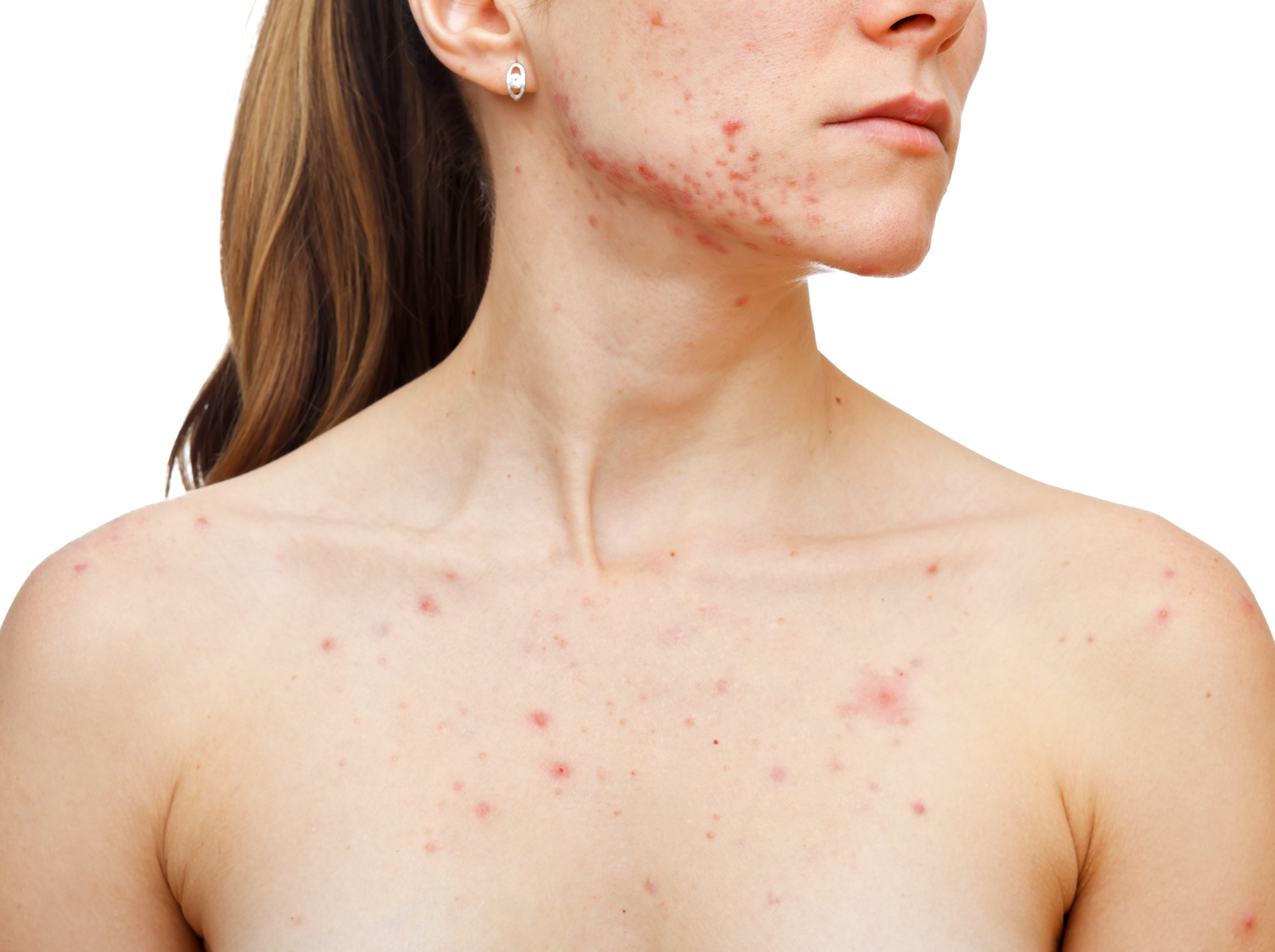For women, controlling acne can often times be a struggle. “Hormone fluxes are well-recognized cause of acne flares,” says Dr. Miriam Hanson board-certified dermatologist and skin care expert in Austin Texas. “With so many hormones in our body, anytime they aren’t in balance you may begin to wonder if this is what’s driving your breakouts.” Although it may not seem like these two things are connected, often times a woman suffering from severe acne may not even know that she also has Polycystic Ovarian Syndrome (PCOS).
What is Polycystic Ovarian Syndrome?
PCOS is a hormonal disorder that affects women. This can lead to multiple cysts on the ovaries, which can help in accurately diagnosing PCOS with imaging. Polycystic Ovarian Syndrome can lead to many things such as weight gain, hair growth due to an increase in testosterone, acne, type 2 diabetes, high cholesterol, and high blood pressure.
“When a female patient has significant acne after her teens years, it may be connected to PCOS,” says Dr. Hanson. This type of acne isn’t just surface bumps, but rather tender knots under the skin which tend to be along the jawline, chin, cheeks, and neck. Suffering from irregular periods is also a good indicator that there is more than just acne occurring. “I often recommend my patients with persistent hormonal acne who are trying but can’t get pregnant get tested for PCOS.”
There are several different ways to be tested for PCOS: one way is a medical exam during which a gynecologist will look at you and take your biometrics. Additionally, blood testing and a ultrasound are the other ways of testing to see if you suffer from PCOS. A culmination of these results will let you know whether or not you suffer from Polycystic Ovarian Syndrome.
How do you treat acne?
You might want to start with a birth control pill. “Several pills on the market are designed to help deal with acne, because they reduce the level of testosterone in the body,” explains Dr. Hanson. However, for severe acne, that may just not be enough. “We’ll often compliment this with additional skin care products suited for your skin type and other potential concerns, like scarring or irregular pigmentation.” Especially since skin is their primary concern, dermatologists have a deep understanding of hormones and how they can adversely affect your skin. By offering high-quality skin care products and a variety of medical treatments, your PCOS-induced acne can be kept under control and resolved.
Next Step?
It’s important to get evaluated if you think your acne is connected to something more serious. By getting tested for Polycystic Ovarian Syndrome, you’ll not only be able to help your doctor to find the best method to treat your skin, but also protect yourself from more serious risks that can be associated with PCOS.
Contact Us
Dr. Hanson treats patients with acne and other skin conditions at Sanova Dermatology. To learn more about what we can do to help treat your acne, please contact us today.
Join Us
